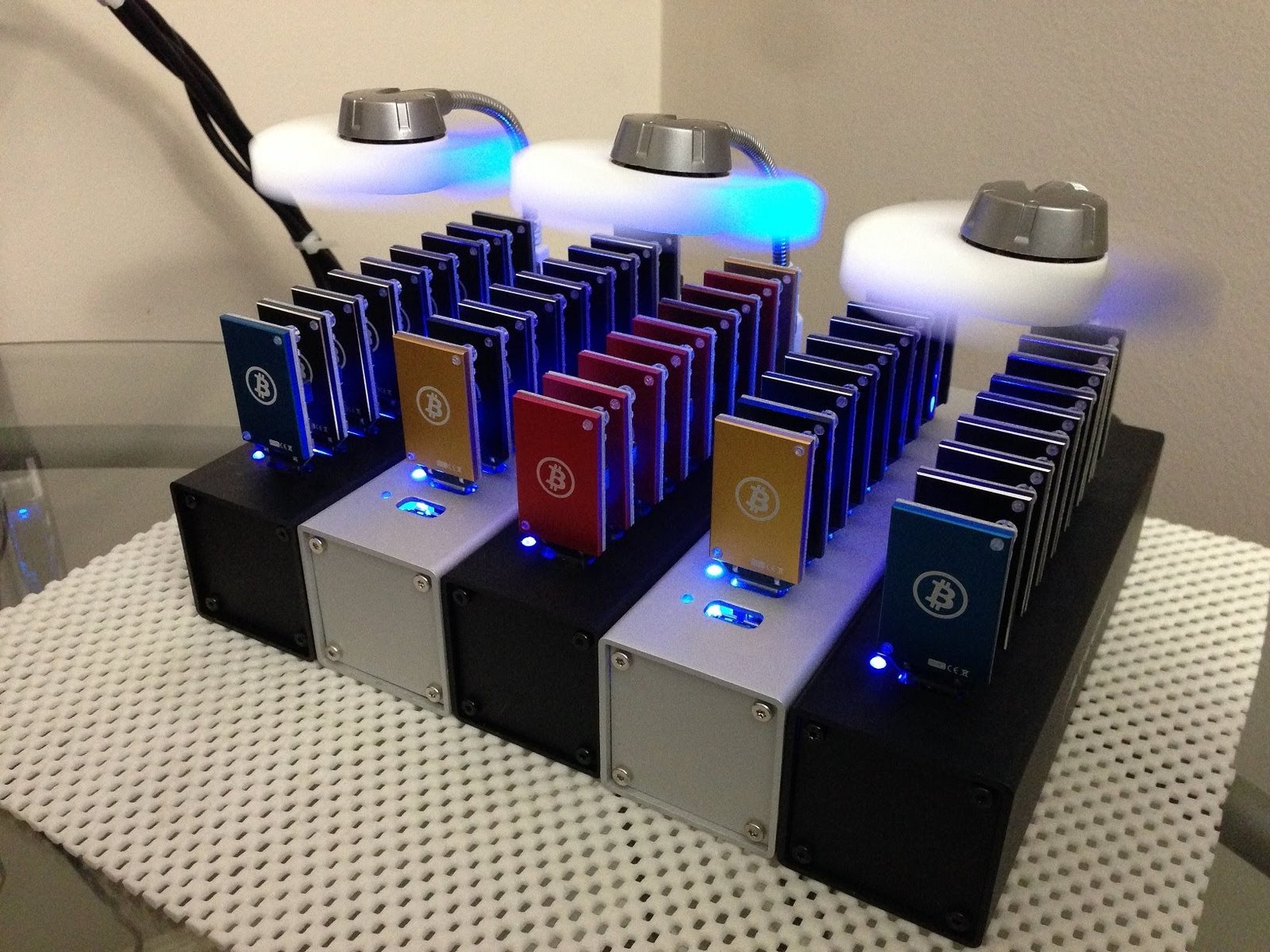The world of cryptocurrency mining has evolved dramatically since Bitcoin’s inception, and home Bitcoin mining has become an increasingly attractive venture for tech-savvy individuals looking to participate in the digital gold rush. With the right Bitcoin mining setup, enthusiasts can potentially generate passive income while contributing to the Bitcoin network’s security and decentralization. However, building a successful home mining operation requires careful consideration of three fundamental components that can make or break your mining profitability.
Unlike the early days when miners could use basic computer hardware, today’s competitive landscape demands specialized equipment and strategic planning. The Bitcoin mining hardware market has matured significantly, offering various options for home miners who want to balance performance with practicality. Whether you’re a cryptocurrency newcomer or an experienced trader looking to diversify your portfolio, understanding the essential components of an effective mining rig is crucial for success.
ASIC miners have revolutionized the mining industry, providing unprecedented hashing power while maintaining reasonable energy consumption for residential use. However, building an amazing home Bitcoin mining setup involves more than just purchasing the most powerful hardware available. The integration of proper cooling systems, reliable power supplies, and efficient space utilization creates a harmonious ecosystem that maximizes your mining profitability while minimizing operational challenges.
This comprehensive guide explores the three essential components that form the backbone of any successful home Bitcoin mining setup. From selecting the right ASIC miner to implementing effective cooling solutions and ensuring adequate power delivery, we’ll cover everything you need to know to build a profitable and sustainable cryptocurrency mining operation from the comfort of your home. Each component plays a vital role in your mining success, and understanding their interdependence will help you make informed decisions that optimize both performance and return on investment.
The Evolution of Home Bitcoin Mining
From CPU to ASIC: The Mining Revolution
The journey of Bitcoin mining began with simple CPU mining, where early adopters could mine blocks using their personal computers. As Bitcoin’s popularity grew, miners quickly discovered that Graphics Processing Units (GPUs) offered significantly better performance for cryptocurrency mining operations. This transition marked the first major shift in mining hardware requirements and set the stage for more specialized equipment.
The introduction of ASIC miners (Application-Specific Integrated Circuits) revolutionized the entire Bitcoin mining landscape. These purpose-built machines delivered exponentially higher hash rates while consuming less power per hash compared to traditional GPU setups. For home miners, this evolution meant that competitive mining became accessible without requiring massive server farms or industrial-scale operations.
Current State of Home Mining in 2025
Today’s home Bitcoin mining environment is characterized by increased accessibility and improved efficiency. Modern ASIC miners designed for residential use operate on standard 120V power supplies, making them compatible with typical household electrical systems. Unlike their industrial counterparts that require high-voltage connections, these miners plug into your regular 110V socket, making them ideal for home use.
The mining profitability in 2025 depends heavily on several factors, including electricity costs, Bitcoin price stability, and mining difficulty adjustments. Home ASIC miners can still be profitable in 2025, especially if you choose efficient models with high hash rates and low power consumption. This makes strategic component selection more critical than ever for maintaining competitive advantages.
Component #1: High-Performance ASIC Miners
Understanding ASIC Technology
ASIC miners represent the pinnacle of Bitcoin mining hardware efficiency, specifically designed to perform SHA-256 hashing algorithms used in Bitcoin’s proof-of-work consensus mechanism. Unlike general-purpose processors, these specialized chips dedicate every transistor to mining operations, resulting in unmatched performance per watt ratios that make home Bitcoin mining feasible and potentially profitable.
The architectural advantage of ASIC miners lies in their single-purpose design. While CPUs and GPUs must accommodate various computational tasks, ASIC chips focus exclusively on mining calculations. This specialization enables them to achieve hash rates measured in terahashes per second (TH/s) while maintaining power consumption levels suitable for residential environments.
Top ASIC Miners for Home Use

Antminer Series Excellence
The Bitmain Antminer series continues to dominate the home mining market with models specifically engineered for residential applications. These ASIC miners balance performance with practicality, offering substantial hash rates without requiring industrial electrical infrastructure. The latest models feature improved chip efficiency and enhanced cooling systems that make them ideal for home Bitcoin mining setup configurations.
Innovative Home Mining Solutions
Functions as both a Bitcoin miner and a home heater. Silent operation with an active cooling fan. LED display with auto light-sensing adjustments for enhanced UX. This dual functionality represents the evolution of ASIC miners toward multi-purpose home appliances that provide both cryptocurrency mining capabilities and practical household benefits.
Advanced models incorporate intelligent features such as automatic temperature monitoring, noise reduction technology, and user-friendly interfaces that simplify mining rig management for beginners. These innovations make home Bitcoin mining more accessible to individuals without extensive technical backgrounds.
Hash Rate and Efficiency Considerations
Calculating Mining Performance
Hash rate serves as the primary metric for measuring ASIC miner performance, typically expressed in terahashes per second (TH/s). Higher hash rates increase your chances of successfully mining blocks and earning Bitcoin rewards. However, home miners must balance raw performance with power consumption to maintain profitability in residential settings.
Power efficiency, measured in watts per terahash (W/TH), determines the operational cost of your mining hardware. More efficient miners consume less electricity per unit of hash power, directly impacting your mining profitability. This metric becomes especially critical for home Bitcoin mining operations where electricity costs significantly influence overall returns.
Optimizing for Residential Use
Home mining operations require ASIC miners that operate effectively within residential power limitations. Loki Rigs are custom ASIC miner setups that use a Loki Kit to allow powerful miners to operate efficiently on 120V power supplies. These specialized configurations enable high-performance mining while maintaining compatibility with standard household electrical systems.
The selection process should prioritize models that offer the best performance-per-watt ratios within your available power budget. Consider factors such as noise levels, heat generation, and maintenance requirements when choosing ASIC miners for residential environments. These considerations ensure your home Bitcoin mining setup remains practical and sustainable long-term.
Component #2: Advanced Cooling Systems
The Critical Importance of Temperature Management
Effective cooling represents the most crucial factor determining the longevity and performance of your home Bitcoin mining setup. ASIC miners generate substantial heat during operation, and inadequate cooling can lead to thermal throttling, reduced hash rates, and premature hardware failure. Professional-grade cooling systems ensure your mining hardware operates within optimal temperature ranges, maximizing both performance and equipment lifespan.
Temperature management directly impacts mining profitability through several mechanisms. Overheated ASIC chips automatically reduce their performance to prevent damage, resulting in lower hash rates and decreased earnings. Additionally, excessive heat accelerates component degradation, leading to costly repairs and replacements that erode your mining returns.
Air Cooling Solutions
Traditional Fan-Based Systems
Standard air cooling utilizes high-velocity fans to remove hot air from ASIC miner enclosures while drawing in cooler ambient air. These systems rely on proper airflow management and adequate ventilation to maintain acceptable operating temperatures. For home Bitcoin mining applications, air cooling offers simplicity and cost-effectiveness while providing sufficient thermal management for most residential environments.
Effective air cooling implementation requires the strategic placement of intake and exhaust fans to create optimal airflow patterns. The cooling system should move heated air away from critical components while ensuring fresh air circulation throughout the mining rig enclosure. Proper air cooling design prevents hot spots that could compromise individual ASIC chips or supporting electronics.
Enhanced Ventilation Strategies
Home miners often enhance basic air cooling through improved ventilation systems that manage ambient temperatures more effectively. Dedicated exhaust systems, directional fans, and intake filters work together to create controlled environments that support consistent ASIC miner performance. These enhancements prove particularly valuable in locations with limited natural ventilation or challenging ambient conditions.
Liquid Cooling Innovations
Immersion Cooling Technology
Set up immersion cooling for your ASIC miner to cut noise, lower temps, and boost efficiency and performance step by step. Immersion cooling represents the cutting edge of Bitcoin mining hardware thermal management, submerging entire ASIC boards in specially formulated dielectric fluids that efficiently absorb and dissipate heat while protecting electronic components.
The advantages of immersion cooling extend beyond temperature management. These systems dramatically reduce operational noise, making them ideal for home Bitcoin mining environments where acoustic considerations matter. Additionally, the improved thermal performance enables higher overclocking potential, potentially increasing hash rates and mining profitability.
Water Cooling Systems
The 12kw intelligent temperature control water-cooled radiator is the simplest and most convenient overclocking system for air-cooled miners and water-cooled miners. Advanced water cooling solutions provide precise temperature control while maintaining quiet operation suitable for residential environments.
Modern water cooling systems incorporate intelligent temperature monitoring and automated adjustments that optimize cooling performance based on real-time conditions. Using a complete professional ASIC miner water cooling system upgrade kit can quickly and correctly achieve cooling effects and reduce high-temperature failures. These comprehensive solutions ensure reliable operation while minimizing the risk of heat-related equipment failures.
Cooling System Selection Criteria
Matching Cooling to Hardware
The appropriate cooling solution depends on your specific ASIC miner models, ambient temperatures, and performance goals. High-performance miners generating substantial heat require more sophisticated cooling systems to maintain optimal operating conditions. Consider the thermal output of your entire mining rig when designing cooling infrastructure.
Cost-Benefit Analysis
While advanced cooling systems require higher initial investments, they often provide better long-term value through improved equipment reliability and enhanced performance potential. Calculate the total cost of ownership, including energy consumption, maintenance requirements, and expected hardware lifespan, when evaluating cooling options for your home Bitcoin mining setup.
Component #3: Reliable Power Supply Infrastructure
Power Requirements for Home Mining
Bitcoin mining hardware demands consistent, high-quality electrical power to operate efficiently and safely. ASIC miners are sensitive to power fluctuations, voltage irregularities, and supply interruptions that can cause performance degradation or equipment damage. Building a robust power supply infrastructure forms the foundation of any successful home Bitcoin mining setup and directly impacts both profitability and operational reliability.
The power consumption of modern ASIC miners varies significantly based on model specifications and performance settings. The power consumption would remain high at around 1.3 kW per ASIC, illustrating the substantial electrical demands of home mining operations. Understanding these requirements enables proper infrastructure planning and cost calculation.
Electrical Infrastructure Assessment
Evaluating Home Electrical Capacity
Before implementing a Bitcoin mining setup, conduct a comprehensive assessment of your home’s electrical infrastructure. Standard residential circuits may not provide sufficient capacity for multiple ASIC miners operating simultaneously. Professional electrical evaluation ensures your system can safely handle the additional load without risking circuit overloads or fire hazards.
You will need to ensure that your mining rig is connected to a reliable source of electricity. You may need to set up a backup power source to keep operations running. It is also important to use good-quality cables, wiring, and circuit breakers to protect your investment and ensure safe operation.
Circuit and Wiring Considerations
Dedicated circuits for mining hardware provide several advantages, including reduced interference, improved safety, and enhanced performance stability. High-current applications like Bitcoin mining benefit from properly sized conductors, appropriate circuit protection, and quality electrical connections that minimize voltage drops and heat generation.
Power Supply Unit Selection
Matching PSU to ASIC Requirements
ASIC miners require power supply units (PSUs) that deliver stable, clean power at the correct voltages and amperages. The PSU must provide adequate wattage headroom to accommodate power spikes and ensure reliable operation under varying load conditions. Quality power supplies also improve overall system efficiency and reduce operational costs.
Efficiency and Reliability Factors
Power supply efficiency directly affects your mining profitability through reduced electricity consumption and heat generation. High-efficiency PSUs convert more input power to usable output, minimizing waste and lowering operational costs. Additionally, reliable power supplies reduce the risk of equipment damage and unplanned downtime that could impact mining earnings.
Backup Power Solutions
Uninterruptible Power Supplies (UPS)
UPS systems provide short-term power backup during utility interruptions, protecting your mining rig from sudden shutdowns that could corrupt data or damage hardware. For home Bitcoin mining operations, UPS protection ensures continuous operation during brief power outages while providing time for graceful shutdown during extended interruptions.
Alternative Power Sources
Some home miners explore renewable energy sources such as solar panels or wind turbines to reduce electricity costs and improve mining sustainability. These alternative power sources can significantly impact mining profitability in areas with high electricity rates, though they require substantial initial investments and careful system design.
Power Management and Monitoring
Smart Power Distribution
Modern power distribution systems enable remote monitoring and control of individual ASIC miners, providing insights into power consumption patterns and enabling optimization of operational parameters. Smart power management helps identify inefficiencies and potential issues before they impact mining performance.
Cost Optimization Strategies
Effective power management includes strategies for reducing electricity costs through time-of-use rate optimization, load balancing, and efficiency improvements. Understanding your local electricity rate structure enables scheduling of high-consumption activities during lower-cost periods, improving overall mining profitability.
Setting Up Your Home Bitcoin Mining Operation

Planning and Preparation
Space Requirements and Optimization
Successful home Bitcoin mining requires dedicated space that accommodates ASIC miners, cooling systems, and power infrastructure while providing adequate ventilation and maintenance access. The mining space should isolate noise and heat from living areas while maintaining security and environmental control necessary for reliable operation.
Consider factors such as ceiling height for proper ventilation, flooring capable of supporting equipment weight, and proximity to electrical panels and internet connections. Proper space planning prevents future complications and enables expansion as your mining operation grows.
Environmental Considerations
ASIC miners perform optimally within specific temperature and humidity ranges. Ambient conditions significantly affect cooling requirements, equipment longevity, and overall performance. Implement environmental monitoring and control systems that maintain optimal conditions while minimizing energy consumption.
Installation and Configuration
Hardware Assembly and Connection
Proper mining rig assembly follows manufacturer specifications while implementing best practices for cable management, component spacing, and airflow optimization. Quality connections and professional installation techniques ensure reliable operation and simplify future maintenance and upgrades.
Network Configuration and Security
Home Bitcoin mining requires stable internet connections for communication with mining pools and blockchain networks. Implement robust network security measures to protect your mining operation from cyber threats while ensuring reliable connectivity that maximizes uptime and earnings potential.
Monitoring and Maintenance
Performance Tracking Systems
Comprehensive monitoring systems track key metrics including hash rates, temperature readings, power consumption, and earnings data. Real-time monitoring enables proactive maintenance and optimization while providing insights necessary for operational decision-making.
Preventive Maintenance Protocols
Regular maintenance schedules ensure ASIC miners operate at peak efficiency while extending equipment lifespan. Preventive maintenance includes cleaning cooling systems, checking electrical connections, updating firmware, and monitoring performance trends that indicate potential issues.
Maximizing Profitability and ROI
Economic Calculations
Break-Even Analysis
Understanding the break-even point for your home Bitcoin mining setup requires accurate calculation of all costs, including equipment purchases, electricity consumption, cooling expenses, and maintenance requirements. Factor in Bitcoin price volatility and mining difficulty adjustments when projecting profitability timelines.
ROI Optimization Strategies
Maximize return on investment through strategic equipment selection, operational efficiency improvements, and cost minimization techniques. Consider factors such as equipment resale value, electricity rate optimization, and tax implications when developing profitability strategies.
Risk Management
Market Volatility Considerations
Bitcoin mining profitability fluctuates based on cryptocurrency market conditions, mining difficulty adjustments, and operational costs. Develop risk management strategies that account for these variables while maintaining sustainable operations during challenging market periods.
Equipment and Operational Risks
There can be minor risks like fluctuating electricity costs, wear and tear of hardware, and changes in cryptocurrency prices that could affect mining profitability. Implement comprehensive risk assessment and mitigation strategies that protect your investment while maintaining operational flexibility.
Future Trends in Home Mining
Technology Evolution
The Bitcoin mining hardware industry continues evolving with improvements in chip efficiency, cooling technology, and user-friendly features. Stay informed about technological developments that could impact your home mining operation and consider upgrade paths that maintain competitive advantages.
Regulatory Landscape
Cryptocurrency regulations continue to develop worldwide, potentially affecting home Bitcoin mining operations. Monitor regulatory changes in your jurisdiction and implement compliance measures that ensure legal operation while protecting your investment.
Also Read: Bitcoin Mining Farm Setup Guide Complete 2025 Blueprint for Profitable Mining Operations
Conclusion
Building an amazing home Bitcoin mining setup requires careful integration of three essential components: high-performance ASIC miners, advanced cooling systems, and reliable power supply infrastructure. Success depends on understanding how these components work together to create an efficient, profitable, and sustainable home mining operation.
The modern Bitcoin mining landscape offers unprecedented opportunities for home miners who invest in quality equipment and implement professional installation practices. While initial costs may seem substantial, the potential for long-term passive income generation makes home Bitcoin mining an attractive proposition for cryptocurrency enthusiasts and investors alike.
By focusing on these three critical components and maintaining a commitment to operational excellence, you can build a mining rig that delivers consistent performance and competitive returns in the evolving world of cryptocurrency mining.


